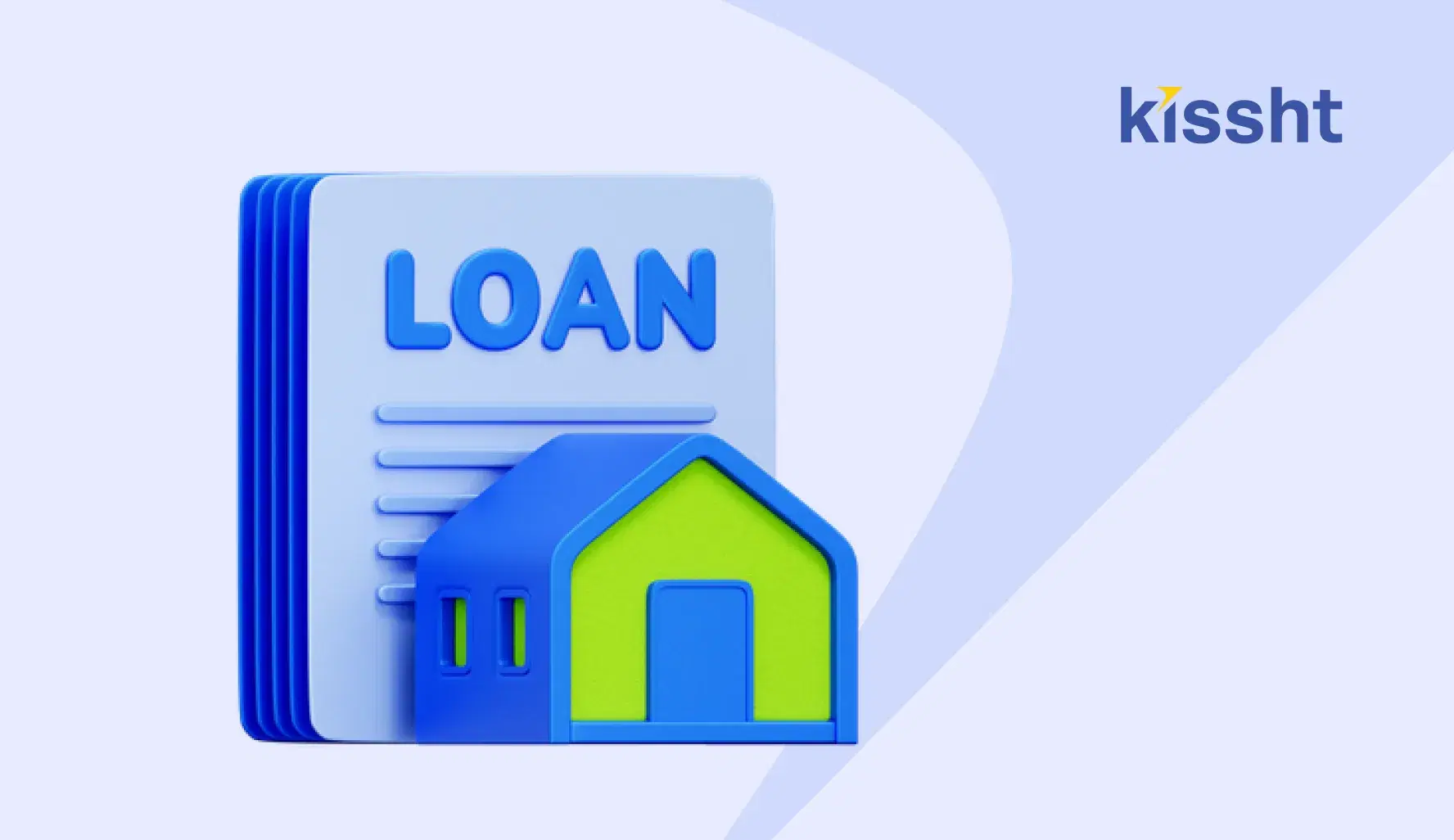Tax Benefits on Loan Against Property: What You Need to Know

When you pledge your commercial or residential property to borrow funds, you enter into a financial agreement known as a loan against property. It’s one of the most preferred forms of secured loans because it gives you access to high-value credit while keeping interest rates comparatively lower than unsecured loans. But apart from liquidity, this loan also offers potential tax advantages, provided you meet specific requirements.
This article explores the loan against property tax benefits, the applicable conditions, and how to plan your loan in a way that aligns with your financial goals and tax obligations.
Also, we will explore how platforms like Kissht, a trusted online loan app, make the loan process simpler and more accessible for borrowers across India.
What is a Loan Against Property?
A loan against property is a type of secured loan where you pledge your immovable asset (such as a home, land, or commercial building) as collateral to get a loan from a financial institution. The ownership of the property remains with you, but the lender holds the legal right to seize it if repayments aren’t made.
The amount sanctioned generally ranges from 40% to 75% of the property’s market value. The tenure can go up to 15–20 years, depending on your repayment capacity and the lender.
You can use the loan for any purpose-whether it's funding your business, covering a medical emergency, or financing your child’s education.
Tax Benefits on Loan Against Property
Many borrowers are unaware that a loan against property can offer tax relief, provided the borrowed amount is used for specific purposes. The mortgage tax benefits are not as straightforward as those for a home loan, but there are still key deductions that can be claimed under the Income Tax Act.
Let’s break them down:
-
Section 24(b): Interest Deduction on Borrowed Capital
Interest paid during a fiscal year up to ₹2 lakh can be deducted under this section of the Income Tax Act. Here's the catch, though. It only applies when a residential property is constructed or bought using the loan against property.
If you use the funds for business purposes or personal needs like weddings or travel, this deduction will not apply.
That said, in the case of a loan against property being used for acquiring a new house, the borrower must maintain proper documentation to prove the usage of funds.
-
Section 37(1): Business Expense Deduction
If you’ve taken a loan and used it for business activities, such as purchasing machinery, paying salaries, or growing your business premises, you may be eligible to claim deductions under Section 37(1).
This section allows you to deduct all expenses incurred for business purposes, including the interest paid on loans.
Thus, if you are a business owner or self-employed professional, this provision can significantly reduce your taxable income.
Important: No tax benefit is available on the principal repayment of a loan against property, unlike Section 80C applicable to home loans.
Understanding the Mortgage Loan Interest Tax Deduction
The term mortgage loan interest tax deduction may sound promising, but it doesn’t automatically apply to every loan against property. It is only applicable when the loan is used for acquiring, constructing, or improving a property that qualifies under housing loan parameters.
However, if your loan is purely for business or professional reasons, you may still claim deductions, but under a different set of rules (as explained above).
Before claiming any tax benefits, consult a tax professional and maintain all necessary documents such as:
- Loan sanction letter
- Interest certificates from the lender
- Proof of usage of funds (e.g., invoices, bank statements)
What About Mortgage Tax Benefits for Salaried Employees?
Salaried individuals may not be able to claim mortgage loan tax benefits unless the borrowed funds are used for home-related purposes. Even then, the deduction will only be limited to interest repayment under Section 24(b).
If the loan is used for personal expenses like a wedding, travel, or medical treatment, no tax benefit can be claimed.
Common Mistakes That Can Cost You Your Tax Benefit
- Using the loan for mixed purposes: If you split the funds between personal and business use, only the portion used for business is eligible for deductions.
- No proper documentation: Lenders may issue interest certificates, but you’ll need additional proof to claim deductions, especially under Section 37(1).
- Missing out on filing interest certificates: This is essential to validate your deduction claims during tax filing.
Summary of Tax Benefits on Loan Against Property
| Loan Purpose | Tax Benefit | Applicable Section |
|---|---|---|
| Purchase/Construction of Property | Up to ₹2 lakh on interest | Section 24(b) |
| Home Repairs/Renovation | Up to ₹30,000 | Section 24(b) |
| Business Usage | Full interest as expense | Section 37(1) |
| Personal Use (wedding, travel) | No benefit | Not applicable |
Conclusion
If you're considering a loan against property, make sure you understand how the mortgage loan interest deduction works in your case. Tax laws can be complex, and assumptions may lead to denial of deductions during audits. Always consult a tax advisor and keep your documentation watertight.
FAQs
-
Can I claim a tax benefit on a loan against property used for a wedding?
No, you cannot claim any tax benefit if the loan is used for personal reasons like weddings or vacations.
-
Is mortgage loan interest tax deductible for a business owner?
Yes, if the loan is used solely for business purposes, the interest amount can be used to claim as a business expense under Section 37(1).
-
Is the principal repayment on a loan against property eligible for tax deduction?
No, tax benefits are only available on the interest component, not on principal repayments.
-
How do I prove the usage of funds to claim a tax deduction?
You need to maintain documents like invoices, contracts, or bank statements that show how the loan amount was used.
-
What happens if I use part of the loan for business and part for personal expenses?
You can only claim the business-related part of the interest as a deduction. Make sure to keep clear records for both uses.
-
Can salaried individuals get tax benefits on a loan against property?
Yes, but only if the loan is used for purchasing, constructing, or renovating a residential property. Otherwise, no tax benefit is available.

Instant Loans at Your Fingertips
Personal Loan
Fast, hassle-free loan for your personal needs.

Business Loan
Fuel your business growth with quick approvals.

Loan Against Property
Unlock your property’s value with ease.

Credit Pulse
Boost your credit score with smart insights.

Track your credit score
Simply enter your mobile number to get a quick overview of your credit score.
Check Now




